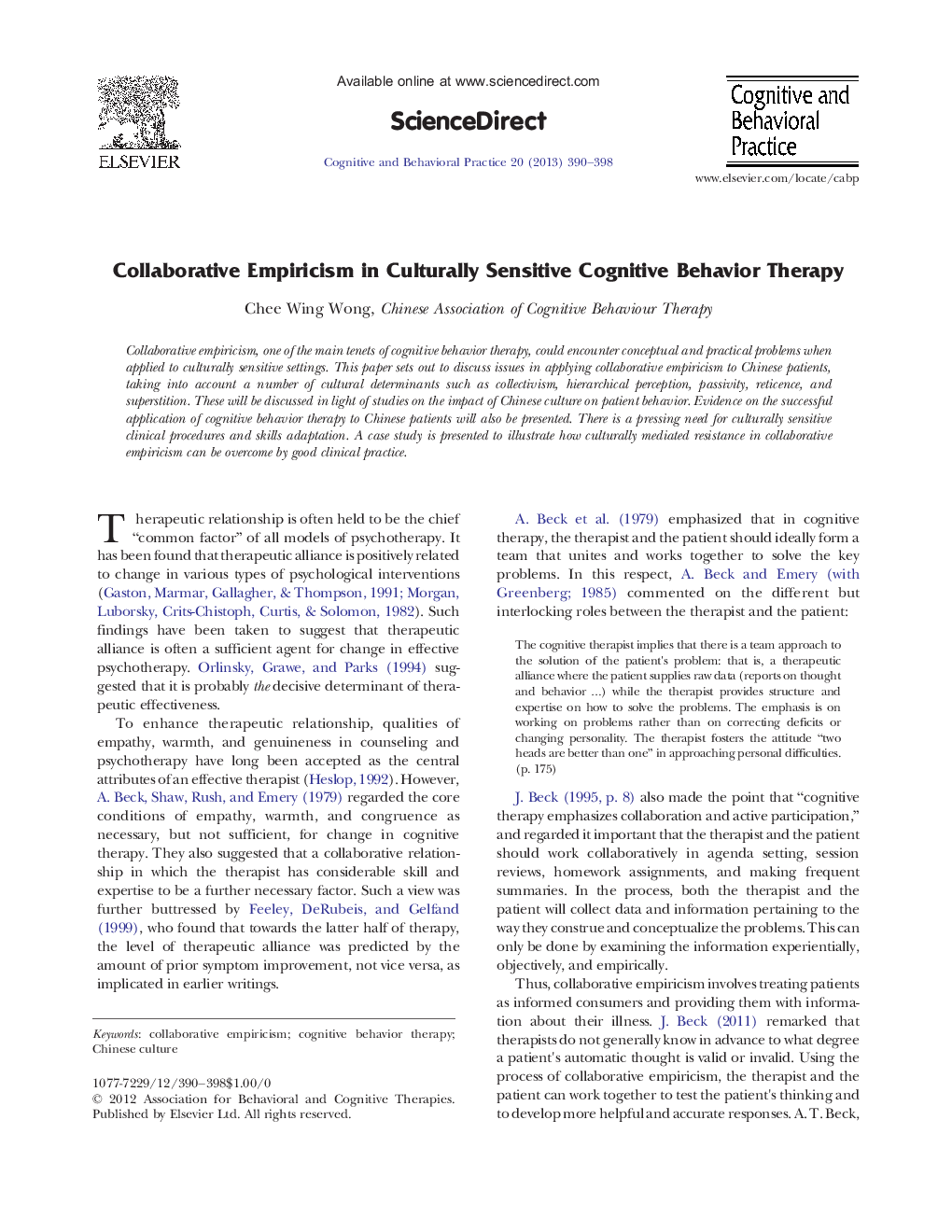| Article ID | Journal | Published Year | Pages | File Type |
|---|---|---|---|---|
| 904296 | Cognitive and Behavioral Practice | 2013 | 9 Pages |
Collaborative empiricism, one of the main tenets of cognitive behavior therapy, could encounter conceptual and practical problems when applied to culturally sensitive settings. This paper sets out to discuss issues in applying collaborative empiricism to Chinese patients, taking into account a number of cultural determinants such as collectivism, hierarchical perception, passivity, reticence, and superstition. These will be discussed in light of studies on the impact of Chinese culture on patient behavior. Evidence on the successful application of cognitive behavior therapy to Chinese patients will also be presented. There is a pressing need for culturally sensitive clinical procedures and skills adaptation. A case study is presented to illustrate how culturally mediated resistance in collaborative empiricism can be overcome by good clinical practice.
► Collaborative empiricism in cognitive behavior therapy is examined in light of its conceptual definitions. ► The application of collaborative empiricism in a culturally sensitive context is discussed. ► The implication of Chinese culture on collaborative empiricism is examined. ► Successful applications of CBT to Chinese patients are highlighted. ► A case example is used to illustrate the discussions.
